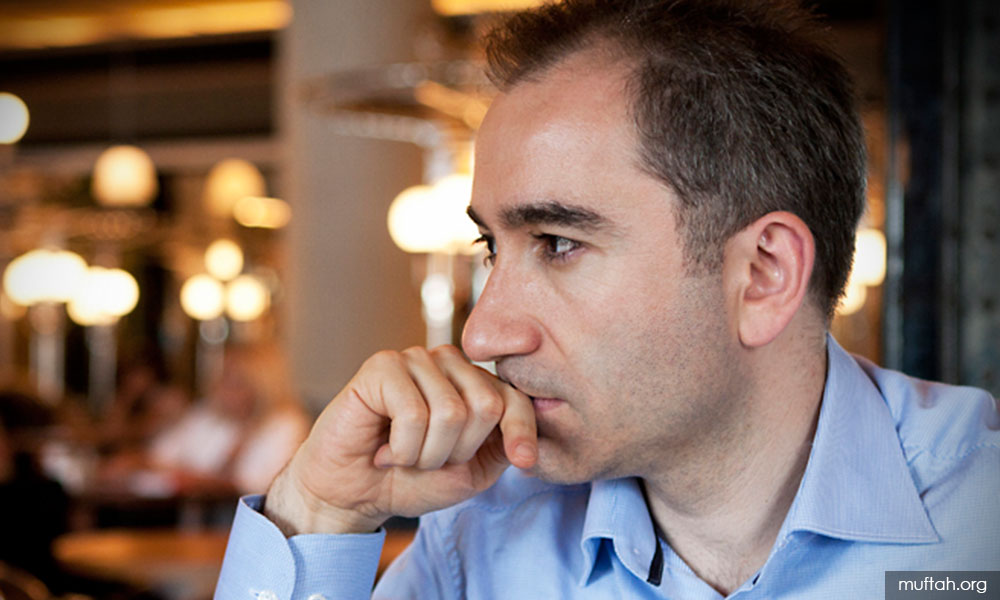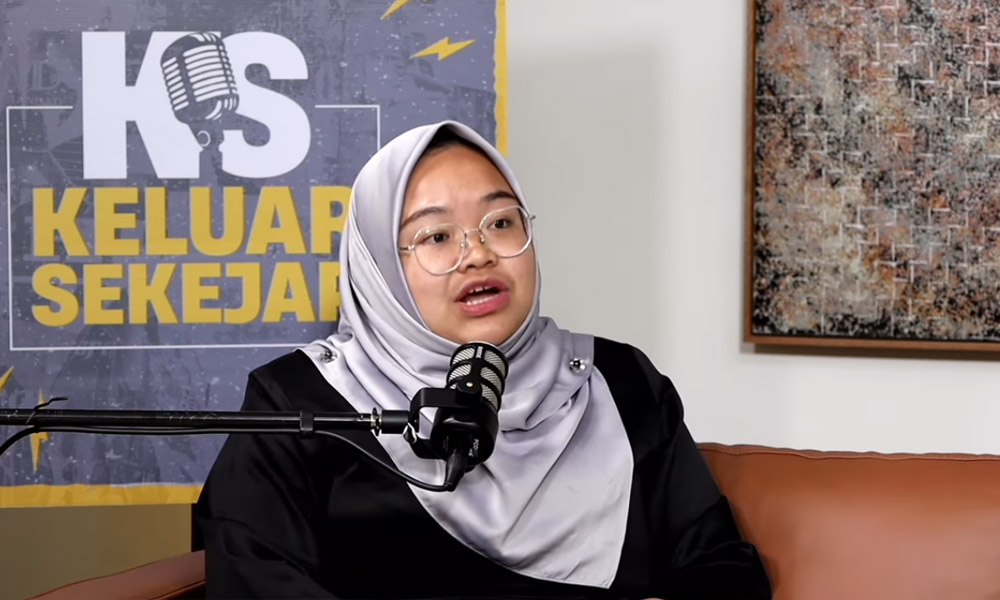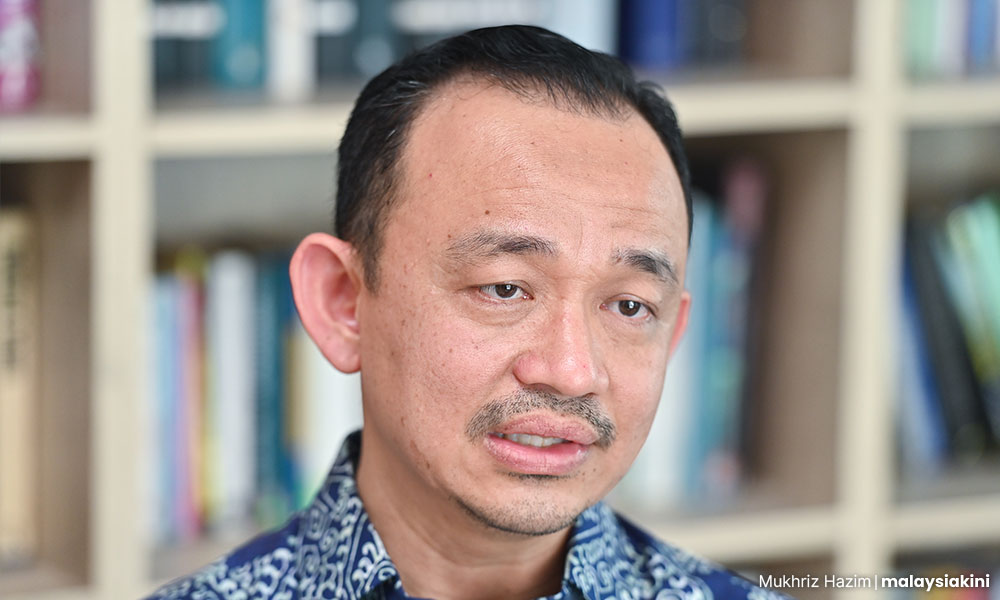The authorities fear you more if you are able to present cogent arguments which may convince others that what you say has merit.
Weapons may kill or maim, but words and convincing reasons can influence generations and create change. This is what governments fear most.
Instead of wrapping our students in cotton wool and caging their minds with invisible barbed wire to stop alternative thought processes from penetrating their brains, we should be encouraging more robust dialogues.
On April 23, the American academic, Bruce Gilley (above) , upset many Malaysians at a lecture at Universiti Malaya.
They did not like his pro-Israeli views, but people tend to forget that being offended does not necessarily mean that they are right.
The professor of political science from Portland State University has since left Malaysia because he feared for his safety.
But interestingly, some people disagree with him. Perhaps, they have forgotten the fear felt by Mustafa Akyol, the senior lecturer of Islam, at Boston College.
In September 2017, Akyol was detained, interrogated and intimidated by the authorities at KLIA. A few hours earlier, his modern approach to apostasy in Islam had triggered warning bells in our archaic religious police, and at KLIA, he was detained and interrogated.
That was not a one-off incident because in January this year, political scientist Ahmet T Kuru, was accused by our authorities of being a terrorist.

His book launch had to be cancelled by a local think tank who feared for his safety. At KLIA, Kuru, who is the director of Islamic and Arabic studies at the San Diego State University, claimed that five plainclothes police officers were waiting for him.
If we want a more robust society, then our universities should be encouraged to invite more speakers with a wide range of views.
Exposure to dissenting views will promote critical thinking and broaden our outlook. This is part and parcel of a good education, but why was UM quick to offer an apology?
Why say sorry for trying to expand the minds of Malaysians? Our students and academics should benefit from the exposure to people with differing views.
Why ban Gilley’s talks and programmes? The nation cannot develop and learn if all we ever do is silence the people whose views we disagree with.
When Gilley made his remarks on stage, did any student or academic, object? Did they make their views known or counter his arguments?
Or did they dive into their Twitter (now X) and Instagram accounts so that they could chalk up thousands of “likes”?
Hypocrisy in M’sia
We should not express surprise at our hypocrisy and the double standards that we practise. Sadly, this is the new norm in Malaysia.
What is good for the goose, is good for the gander, but not in Malaysia, it appears.
When the controversial Muslim preacher Dr Zakir Naik divided the nation, the authorities treated him like a celebrity; but Gilley’s pro-Israel remarks resulted in him being given the boot.
The knee-jerk reaction against Gilley was predictable.
The Higher Education Minister Zambry Abdul Kadir cancelled all of Gilley’s programmes. He also instructed UM to probe the matter and provide the ministry with details.
What details does Zambry require? As an academic, Gilley should be free to express his views and it is up to the students, members of academia and the general public to consider his opinions and shape their own.

The herd mentality is also strong in Malaysia and some of us were surprised at the response by Muda acting president Amira Aisya Abdul Aziz, who agreed with Zambry that academic institutions should be careful when inviting speakers and lecturers.
Amira once said that she would like a complete overhaul of our education system but cherry-picking who should be allowed to give talks is not the way.
Some speakers will inspire, whilst others will be controversial, but it is only through the exchange of ideas and debating a wide range of topics and viewpoints, that we can improve.
If our universities were to only invite speakers who did not challenge the comfortable views of the over-indulged, or the pampered students and members of the rakyat, then something is wrong with our education.
Zambry said that universities do not have absolute freedom and should consider local sensitivities.
Did he say anything about those who insult non-Muslim religions? Observing local sensitivities is not just a one-way street.
When Zambry said the decision of universities had to agree with the government’s stand and policies, then what he probably means is that others must gel with the opinions of his boss, Anwar Ibrahim, whose pro-Hamas views run counter to Gilley’s pro-Israeli stance.

Even former education minister Maszlee Malik wants the UM’s vice-chancellor to apologise and someone’s head to roll.
Not every opinion is palatable, and some topics will be difficult, but it is more important to argue the issue and articulate our own responses, rather than silence the critics and punish the messenger just because we do not agree with them.
When will we ever learn? - Mkini
MARIAM MOKHTAR is a defender of the truth, the admiral-general of the Green Bean Army, and the president of the Perak Liberation Organisation (PLO). Blog, X.
The views expressed here are those of the author/contributor and do not necessarily represent the views of MMKtT.



No comments:
Post a Comment
Note: Only a member of this blog may post a comment.